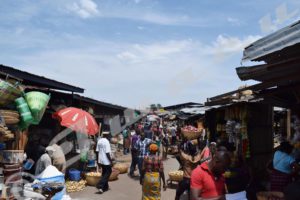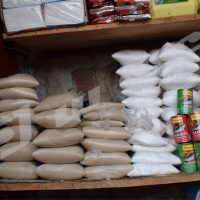
The price of staple food has increased these days
The price of the staple foods has increased by up to 67% at a key market in Bujumbura. At the Buyenzi Market called “Chez Sion”, the price of rice from Zambia has risen to BIF 400 per kilo from BIF 1200 just one month ago. Rice from Tanzania costs BIF 2000 per kilo, while it cost BIF 1800 per kilo a month ago. Yellow beans are now rare in the markets and sell for BIF 1,700, compared to BIF 1300 a month ago. Beans called “Kirundo”, which cost 900, now sell for BIF 1450. The price of local potatoes has increased from BIF 600 to BIF 1000 per kilo.
Traders said the price of staple foods has increased due to the lack of foreign currencies and to climate change. “Some agricultural food products come from abroad. Due to the lack of currency, we no longer import”, he says. For two months, there have been almost no potatoes (Ruhengeri) from Rwanda in Burundi.
In July 2016, the Burundian government banned trade with Rwanda. Since then, food prices have risen and shortages have become more common. Even before the ongoing political crisis that began in April 2015, Burundi was considered one of the hungriest countries in the world. The situation has since worsened, according to residents in the capital.
Customers at the Sion market are concerned about the excessive rise in prices of staple food. “This situation scares me at each beginning of the month. I buy regular quantities of beans, rice, oil and other products, to a value of BIF 250,000. Currently, this amount is not sufficient to cover our needs”, said a customer.
Pierre Nduwayo, spokesperson of the association of consumers (ABUCO) said the prices of staple foods are rising across the whole country. “Farmers have started the agricultural season and they are in need of seeds. For this, the traders speculated to increase the price of some products. Moreover, climate change has contributed to the decrease of the harvest”, Nduwayo said.
He called on the farmers to carefully regulate the harvest and said the Ministry of agriculture and other organizations should support farmers by providing seeds. “Traders will no longer need to increase the prices of the staple foods”, he said.
According to the latest UNDP Burundi survey, 82.1% of the populations live on $1.25 a day or less and 90% of the Burundian populations rely on agriculture. This means the population is exceedingly vulnerable to price fluctuations, export restrictions, and food scarcity.



















 IWACU Open Data
IWACU Open Data

